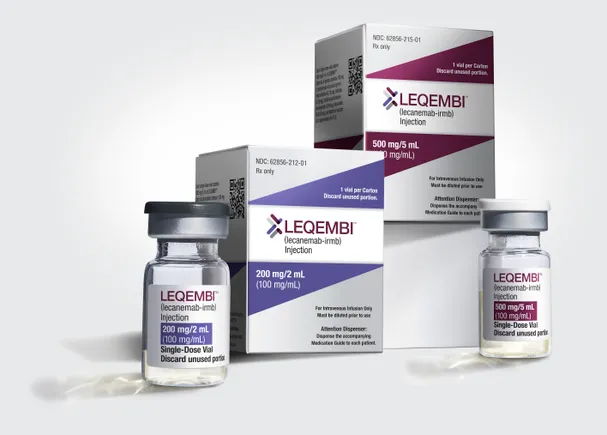Hello BioPharmaPulse Readers!
Welcome to another edition of BioPharmaPulse. In this rapidly evolving biopharmaceutical landscape, staying informed is key. Let's dive into the latest breakthroughs and developments shaping our industry.
What's in this issue:
- 🚀 Eli Lilly's bold move into molecular glues with a $1.25B deal
- 🧠 Leqembi's journey towards EU approval gains momentum
- ⚠️ Praxis pushes forward despite Phase 3 trial setback
- 💡 Discover the potential impact of molecular glues on drug development
- 🧬 Latest trends in biopharma to keep an eye on
Quote of the Day
"Innovation is the unrelenting drive to break the status quo and develop anew where few have dared to go." – Steven Jeffes
Latest Developments
🚀 Eli Lilly Ventures into Molecular Glues with Magnet Deal Worth Up to $1.25B (2 minute read)

Rundown: Eli Lilly has partnered with Magnet Biomedicine to explore the promising field of molecular glues, in a deal potentially worth up to $1.25 billion. This collaboration aims to develop novel therapies that can target diseases previously considered 'undruggable'.
Key Points
- 🧪 Innovation in Drug Development: Molecular glues offer a new approach to drug discovery by facilitating interactions between proteins.
- 🤝 Strategic Partnership: Magnet Biomedicine brings expertise in molecular glue technology, complementing Lilly's resources.
- 💰 Significant Investment: The deal includes up to $40 million upfront, with the potential for substantial milestone payments.
- 🌐 Broad Potential: Focus areas include oncology and immunology, targeting hard-to-drug proteins.
Why it matters: This partnership signifies a major investment in cutting-edge drug development technologies. Molecular glues could open doors to treat diseases that have eluded traditional therapies, potentially transforming patient outcomes in areas like cancer and autoimmune disorders.
🧠 Leqembi, After Delay, Gets Back on Track Toward EU Approval (2 minute read)

Rundown: Eisai and Biogen's Alzheimer's drug Leqembi is back on the path to European approval after the European Medicines Agency reaffirmed its positive opinion. The drug targets early stages of Alzheimer's disease by reducing amyloid beta plaques in the brain.
Key Points
- 💊 Therapeutic Advancement: Leqembi is designed to slow the progression of Alzheimer's in patients with mild cognitive impairment.
- 🏛️ Regulatory Progress: Despite earlier concerns, the EMA supports Leqembi's approval, pending European Commission's final decision.
- 🔬 Targeted Treatment: The recommendation focuses on patients with ≤1 copy of the ApoE4 gene variant.
- 🌍 Global Impact: Approval would make Leqembi available across the European Economic Area, affecting millions.
Why it matters: Alzheimer's disease remains a critical area of unmet medical need. Leqembi's potential approval in Europe brings hope for patients and underscores the importance of innovative treatments in neurodegenerative diseases.
⚠️ Praxis Flouts Phase 3 Futility Finding, Forging Ahead with Tremor Trial Despite Interim Setback (2 minute read)

Rundown: Praxis Precision Medicines received a recommendation to halt its phase 3 essential tremor trial after interim data suggested it is unlikely to meet the primary endpoint. Despite this, Praxis has decided to continue the trial to completion.
Key Points
- 👩🔬 Determined Pursuit: Praxis is committed to seeing the trial through despite interim challenges.
- 🧬 Essential Tremor Focus: The drug aims to address a significant unmet need for patients with essential tremor.
- 📊 Data Analysis: Interim results indicated the primary efficacy endpoint might not be met under current parameters.
- 🔄 Next Steps: The company will proceed with the trial to gather comprehensive data.
Why it matters: Essential tremor affects millions and lacks effective treatments. Praxis's decision highlights the complexities of clinical development and the importance of comprehensive data before concluding a drug's potential.
Question of the Day
🤔 How do you think molecular glue technology will impact future drug development?
Trending
📈 BridgeBio's Oncology Spinout Backs SPAC as Path to Nasdaq
- BridgeBio's cancer unit is set to go public via SPAC merger, aiming to advance cancer therapies targeting KRAS mutations.
💰 Zevra to Net $150M from Priority Review Voucher Sale
- Zevra Therapeutics sells its FDA priority review voucher for $150 million to fund further R&D and commercial efforts.
📉 Ginkgo Further Scales Back Boston Real Estate
- Ginkgo continues restructuring by subleasing additional office space, reflecting industry trends in biotech real estate.
Industry Insight
🔬 Understanding Molecular Glues: A New Frontier in Drug Discovery
Molecular glues represent a novel approach in drug development, offering the potential to target proteins previously considered undruggable. They work by facilitating interactions between proteins, effectively 'gluing' them together to modulate disease processes.
By learning about molecular glues, researchers and industry professionals can explore new therapeutic avenues, particularly in oncology and immunology. This could lead to treatments for diseases that currently lack effective options, ultimately improving patient outcomes.
Quick Hits
🌐 RFK Jr. Moves to Eliminate Public Comment in HHS Decisions (3 minute read)
- Proposed changes in HHS policy may reduce public participation in health decision-making processes.
🔄 Layoffs at Eisai and CRISPR Therapeutics (1 minute read)
- Eisai and CRISPR Therapeutics announce workforce reductions amidst strategic shifts.
💉 FDA Roundup: February 28, 2025 (2 minute read)
- Highlights include new approvals and safety alerts from the FDA, impacting various treatments and devices.
🧬 BlueRock Therapeutics Receives FDA Fast Track Designation (1 minute read)
- BlueRock's OpCT-001 receives Fast Track designation for treating primary photoreceptor diseases, expediting its development.
Wrap Up
Thank you for joining us in this edition of BioPharmaPulse. Staying abreast of these advancements not only keeps us informed but also inspires innovation within our community.
Let's continue to push the boundaries of what's possible in biopharmaceuticals. If you found this newsletter valuable, feel free to share it with colleagues and friends.
Until next time,
Elliot Reeves
BioPharmaPulse
😊 How did you like today's email?
- 😍 Loved it
- 🙂 It was OK
- 😕 Could be better
